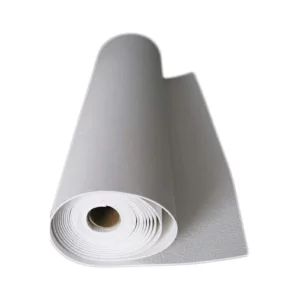Ceramic modules are advanced and versatile components that play a crucial role in various industrial applications. This article explores the role and benefits of ceramic modules, highlighting their exceptional thermal stability, chemical resistance, mechanical strength, and adaptability to challenging environments.
Understanding Ceramic Modules
Overview of Ceramic Modules
Ceramic modules are structured assemblies composed of high-quality ceramic materials. They are designed to provide efficient and reliable performance in demanding industrial environments. These modules consist of individual ceramic elements, such as plates, tubes, or fibers, arranged in a specific configuration to achieve desired properties and functionalities.
Types of Ceramic Modules
There are several types of ceramic modules available, including ceramic plate modules, ceramic tube modules, and ceramic fiber modules. Each type has unique characteristics and is tailored to suit specific industrial applications.
Thermal Stability and Insulation Properties
Exceptional Thermal Stability
Ceramic modules exhibit exceptional thermal stability, allowing them to withstand high temperatures without significant degradation. They can operate in extreme heat conditions, making them ideal for applications such as furnaces, kilns, and high-temperature processing.
Superior Thermal Insulation
One of the primary benefits of ceramic modules is their excellent thermal insulation properties. They effectively minimize heat transfer, reducing energy consumption and improving overall process efficiency. Ceramic modules help maintain stable temperatures, protect surrounding equipment, and enhance safety in industrial operations.
Chemical Resistance and Corrosion Protection
Chemical Resistance
Ceramic modules possess remarkable chemical resistance, making them suitable for applications involving corrosive substances. They can withstand exposure to acids, alkalis, and other aggressive chemicals, ensuring long-term performance and reliability in challenging environments.
Corrosion Protection
By utilizing ceramic modules, industries can effectively protect equipment and structures from corrosion. These modules act as a barrier against corrosive agents, preventing damage and extending the lifespan of critical components. They find applications in chemical processing, wastewater treatment, and other corrosive environments.
Mechanical Strength and Durability
High Mechanical Strength
Ceramic modules exhibit high mechanical strength, enabling them to withstand mechanical stress, vibrations, and impacts. They offer excellent structural integrity, making them suitable for applications where robustness and durability are essential, such as in industrial furnaces, reactors, and heat exchangers.
Longevity and Reliability
Due to their inherent strength and resistance to wear, ceramic modules have a long lifespan and require minimal maintenance. They can withstand harsh operating conditions, reducing downtime and increasing overall operational efficiency.
Adaptability and Versatility
Customization and Design Flexibility
Ceramic modules can be customized and designed to meet specific requirements of different industrial applications. They can be tailored in terms of shape, size, configuration, and material composition, ensuring optimal performance and compatibility with existing systems.
Wide Range of Applications
Ceramic modules find applications in various industries, including metallurgy, chemical processing, power generation, and semiconductor manufacturing. They are used in heat exchangers, catalytic converters, filtration systems, and other critical components, contributing to improved efficiency, productivity, and safety.
Ceramic modules play a vital role in enhancing industrial processes by providing exceptional thermal stability, chemical resistance, mechanical strength, and adaptability. Their thermal insulation properties, corrosion protection capabilities,ceramic modules and longevity make them indispensable in high-temperature environments and corrosive conditions. As industries continue to evolve, ceramic modules will remain at the forefront of technological advancements, contributing to improved efficiency, sustainability, and reliability in industrial applications.
